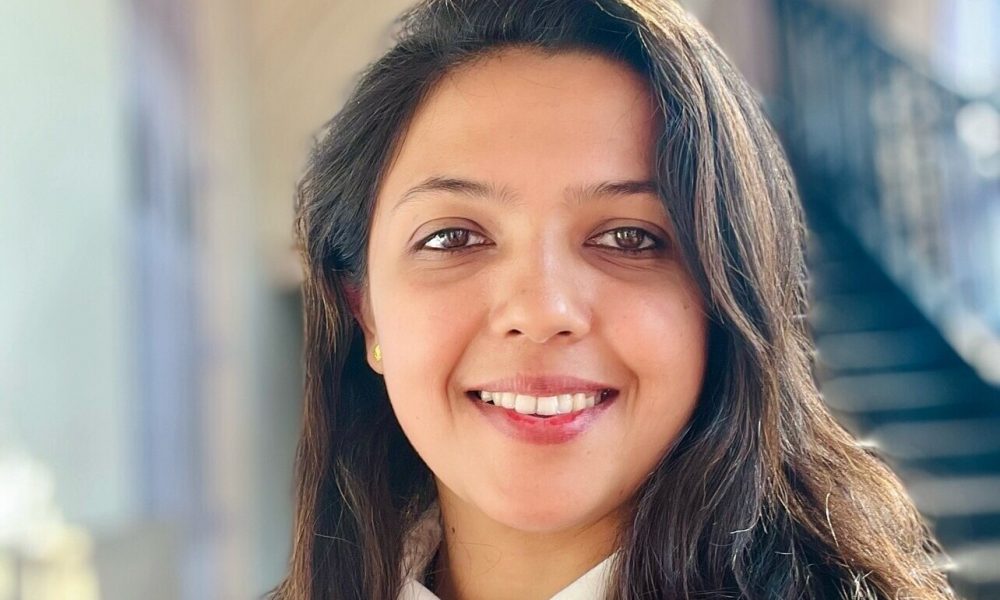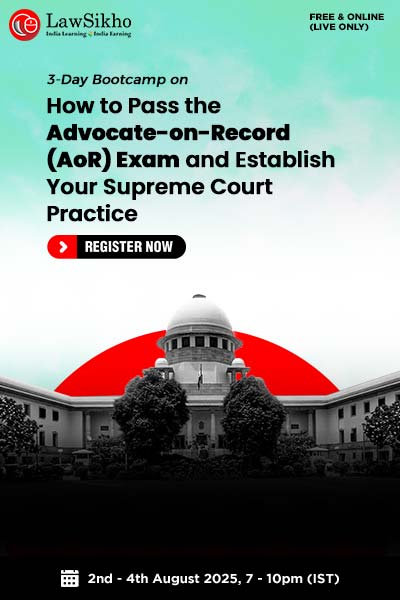
This interview has been published by Anshi Mudgal and The SuperLawyer Team

In the initial phase of your career, you worked with various lawyers and practiced in areas like MCOCA, PMLA, PITA, DV Act, PCA, etc. What has been one of the most endearing experiences from that time?
One of the most endearing experiences from the early phase of my career was witnessing the practical application of legal principles in complex cases like MCOCA, NDPS, PCA, PMLA, etc. where constitutional safeguards and procedural nuances played a crucial role. I distinctly recall filing and handling a writ petition for a minor girl, Sakshi challenging the denial of her admission to FYJC (First Year Junior College) under the HSC Board despite her selection on merit through the First Come-First-Served (FCFS) round of the online admission process for the academic year 2019–2020. Sakshi had been allotted a seat in the reputed institution of the city, Mithibai College, Mumbai, but was arbitrarily denied admission despite vacancies. After the Hon’ble Bombay High Court stepped in, Sakshi got admission in Mithibai College, Mumbai, based on her merit. The Court’s decision made sure that she received the education which she deserved and was treated fairly. This matter marked my first independent appearance, wherein I undertook the drafting of the petition, completed the filing process and conducted the arguments before the Court and ultimately secured a favourable order for the minor girl, ensuring justice was served. The learning process was challenging, but those early years built the foundation for my independent practice and taught me to appreciate both the complexity of law and its real impact on people’s lives.
Coming from a B.Sc. background, what made you choose law as a career? How has your B.Sc. degree helped you in the legal landscape?
Though I pursued B.Sc. out of academic interest, my growing curiosity about social systems, justice, and access to rights gradually pulled me toward the field of law. During my undergraduate years, I became aware of the lack of legal awareness in everyday life, especially among women and marginalized communities. Motivated by this, I had filed a few RTI applications seeking information on public issues for instance, the persistent problem of non-functional street lights around our girls’ hostel area, drainage issue, etc. and these small steps that gave me a sense of law’s power to create transparency and accountability. These experiences shaped my decision to take up law not just as a career, but as a means to contribute meaningfully to society. That is when it hit me that law could be a powerful tool for change. My science background has actually helped a lot. It trained me to think clearly, work methodically and solve problems step by step. This approach really comes in handy when dealing with complex legal issues, especially in white-collar crimes and statutory offences with precision, clarity, and a structured mindset.
What motivated you to establish your own practice after gaining significant experience with various lawyers? Were there any hurdles you faced, and how did you navigate them?
After a few years of working with experienced lawyers, I reached a point where I wanted to build a practice that reflected my personal values like empathy, integrity, and client-centric advocacy. The desire for doing something on my own and deeper involvement in each case naturally led me toward independent practice.
Being a first-generation lawyer, living in a city like Mumbai, away from home, the journey was not easy. Building client trust, managing court appearances alone, and handling all the administrative aspects of running a practice were significant challenges. Yet, with time, I started getting good at matters and the real reward was the satisfaction of helping someone get justice which made every effort worthwhile.
The biggest hurdle came during the Covid-19 pandemic. Just as I had started practicing independently, the nationwide lockdown brought everything to a halt, especially in Mumbai. It felt like starting all over again. But with patience, hard work, and the trust of my clients and family, I slowly rebuilt my practice from scratch. Consistency, strong networks, and a growing support system helped me bounce back. That phase tested my patience and resilience, but ultimately strengthened my commitment to the profession.
What has been one of the most interesting or challenging cases you’ve encountered so far, and how do you prepare for such a matter?
One of the most challenging cases I have handled was a bail application in a double murder case which I have argued before the Bombay High Court and secured bail (BA/2666/2021). The gravity of the offence under Section 302 IPC meant I had to be extremely thorough. I spent a lot of time going through the FIR, charge sheet, forensic reports and witness statements and every detail mattered.
In such sensitive or complex matters, I have learned that preparation is not just about reading the case file. It is about thinking a few steps ahead. I try to anticipate what the other side might argue, apply my mind to the facts and legal issues and dive into relevant laws and precedents that can support the case. I also spend time planning how I will present the matter in court, not just what to say, but how to say it clearly and confidently.
At the same time, I make it a point to understand the client’s background and the full story behind the case. Knowing their situation, emotions and what is at stake helps me build a stronger, more grounded argument. After all, law is not just about rules, it is about people. That human side really matters in how you approach a case.
While dealing with various Criminal Law, Constitutional Remedies, and White-Collar Crimes over the years, what are some of the common issues you frequently encounter in criminal law cases?
One of the most common issues I have come across, especially in criminal law, is procedural lapses. Whether it is a delay in filing the FIR, improper collection of evidence from the crime scene, recording statements of the witnesses, non-compliance with mandatory provisions like Section 41A of Cr.P.C., these lapses often become crucial in bail arguments and trial strategy.
Another recurring challenge is the lack of awareness, both among accused persons and complainants, about their rights, laws of the country and legal remedies. Many clients approach us after having already made statements without legal assistance, or worse, not understanding the implications of their actions.
In white-collar crime cases, what stands out is the volume and complexity of documentation. These matters require not just legal knowledge but a strong grip over financial data, transaction trails, statutory compliance and application of mind. Misunderstandings often arise due to overlaps between civil and criminal liability, and part of our job becomes explaining the legal position in simple terms, both to clients and, at times, even to investigating officers.
What really helps is a combination of legal preparation and practical insight, understanding the ground realities, staying updated with the law and evolving jurisprudence and maintaining clear, consistent communication with clients at every stage.
When handling highly sensitive matters, especially those involving social evils like atrocities against women, how do you manage both the procedural aspects and the emotional sensitivity of the case? How does this affect your personal stress and mental health?
Cases involving atrocities against women are some of the most emotionally intense and legally demanding matters I handle. On one hand, you have strict procedural timelines like filing complaints before appropriate authorities, ensuring protection, custody and maintenance
orders, gathering evidence and on the other hand, you are dealing with someone’s trauma, fear and often a complete breakdown of trust in the system.
What I have learned is that you have to create space for both. I approach the procedural side with precision, ensuring that no technical lapse weakens the case. At the same time, I spend time building a rapport with the client, making them feel heard and safe, explaining to them about their rights and legal remedies available to them. Sometimes that means just being present and not rushing the conversation. Trust plays a huge role in such matters.
Emotionally, these cases do take a toll. It is hard to stay completely detached when you are witnessing the real impact on someone’s life right in front of you. I have had moments of helplessness, especially when systemic delays frustrate the client. To manage the stress, I try to set boundaries after work hours, talk to family members and peers who understand the space and stay grounded in the thought that I am doing my best, I can within the framework of the law.
Over time, I have realized that empathy does not weaken your professional edge and rather it strengthens your advocacy, especially in cases where legal issues are closely connected to real-life experiences.
You played a pivotal role in a case where the Bombay High Court ordered a re-investigation into a fatal road accident after four years. What were the key legal and strategic challenges in convincing the Court to reopen the case, and how did this decision impact the victim’s family and the broader discourse on delayed justice?
Yes, this was a deeply emotional and legally challenging case for me. The biggest hurdle was that the case had already been closed with the deceased, my client’s son who was wrongly named as the sole accused in the FIR and chargesheet. It had been more than four years since the accident, and no steps were taken by the police to trace the actual offender viz. a 10-wheeler container truck driver that had caused the accident and fled the scene.
The turning point for me was gathering and presenting strong evidence, particularly CCTV footage of the accident spot from which the involvement and negligence of the truck driver could be established. Strategically, I had to convince the Court that the original investigation was not only flawed but had caused additional trauma to a grieving mother who was fighting to clear her deceased son’s name from the FIR and chargesheet.
The Hon’ble Bombay High Court ordered a fresh investigation which led to correction of procedural errors and ultimately, the withdrawal of all baseless allegations against the deceased. This decision brought long awaited closure and dignity to the victim’s family. More importantly, it reinforced the judiciary’s role in correcting institutional lapses and revived public confidence in the justice delivery system. It was not just a legal win but it was personal justice. More broadly, this case sends a strong message that even delayed justice is not denied justice.
What guidance would you offer to law students and aspiring litigators hoping to chart a path like yours? Is there a particular mindset, skill set, or approach you believe is essential in today’s dynamic legal environment?
The first thing I would say is, there is no fixed formula for success in litigation. My path will be different from yours, and that is completely normal. What really makes a difference is sticking with it, being patient, staying consistent, and showing up every day, even when it feels like nothing is happening. That is when growth is quietly taking place.
In today’s legal environment, being a litigator is not just about knowing the law but it is about being responsive, reading people, handling pressure and adapting quickly. So, while courtroom exposure is important, equally important is the ability to listen carefully, communicate clearly and write persuasively. Even a well-drafted writ petition can set you apart.
One thing I always recommend to students is, utilise your time by doing internships with diverse lawyers, trial court practitioners, senior counsels, NGOs. Observe how they work, not just what they say in court. These early learnings will shape how you think and practice later.
And finally, believe in the long game. Litigation takes time. You may have to wait to argue your first matter or sign your first client. But if you are honest with your work, keep learning and stay grounded, opportunities do come.
Balancing professional commitments with impactful social engagements is no small feat. As General Secretary (Co-incharge of Nashik Region & Women Advocates’ Cell) with the MPCC, while also actively delivering legal awareness sessions and mentoring young law students, how do you manage your time and maintain personal well being amidst such a dynamic schedule?
Honestly, it is a constant balancing act and I am still learning! What helps me the most is planning and setting clear priorities. I make sure to block time in my week for legal work, social initiatives, student mentoring etc.
But I have also learned that it is okay to say no sometimes. I used to feel guilty about turning down opportunities, but now, I remind myself that quality matters more than quantity, whether it is in court or during any activity.
To manage personal well-being, I try to find small moments in life like taking a walk, going for a trek, grabbing a cup of tea with colleagues, or just switching off from screens for a bit. It really helps. I also lean on my support system – my family, friends and even co-workers who keep me grounded and remind me to pause and recharge when things get hectic.
It is busy, yes, but when you truly care about both your profession and your interest, you somehow find the rhythm that works for you.
Get in touch with Reshma Mutha –









